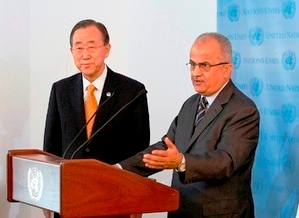This post is for those fell short.
Rejection is more than a fact of life. It is an enduring feature, a constant challenge, not always predictable but as sure to come about as the four seasons in my home town of Buffalo, New York.
You know when you stretch yourself that there's a chance you'll fail. But it still hurts when you don't succeed.
The Irish writer Samuel Beckett put it well: "Ever tried. Ever failed. No matter. Try again. Fail again. Fail better."
Consider these failures:
- Abraham Lincoln lost in his first try for the Illinois legislature, lost in his first attempt to be nominated for Congress, lost in the senatorial elections of 1854 and 1858.
- Albert Einstein did not speak until he was four years old and did not read until he was seven.
- Van Gogh sold only one painting in his lifetime.
- Winston Churchill failed sixth grade.
- Elvis Presley was told by the manager of the Grand Ole Opry in 1954: "You ain't goin' nowhere, son. You ought to go back to drivin' a truck."
- James Joyce's "The Dubliners" was rejected by 22 publishers.

Some readers of this blog will receive an email next week saying they have not been admitted for next year. It's little solace to be told that it's a competitive process, that we have to be selective, that it's not the end of the world.
How about looking at it this way:
- You've given it your best shot, which is the best you can do. If you haven't done your best, what could you have done better?
- Have you learned something about yourself along the way? As I've said before, it's not the destination that counts but the getting there.
- What were your strongest points along the way? What are the areas you might work on?
- Are you as sure as when you started that a master's in international relations is for you? If so, and you have other options, then you have that choice. If you don't have other options, you can start anew and be a stronger candidate if that's what you want. Or perhaps you've decided in the end that you'd like to do something else.
 While rejection does hurt, you knew when you applied that admission to SAIS is competitive. You may want to know the reasons you fell short. I think you deserve an answer if you ask the question. We will try to respond to anyone who does ask, although please keep in mind that we are very busy these next few weeks.
While rejection does hurt, you knew when you applied that admission to SAIS is competitive. You may want to know the reasons you fell short. I think you deserve an answer if you ask the question. We will try to respond to anyone who does ask, although please keep in mind that we are very busy these next few weeks.Facing the truth can be hard. I remember well a conversation I once had in a hotel in New Delhi, India, with a senior manager for the company I worked for, who very candidly and in excruciating detail laid out my faults. He did it so I could learn. As I trusted him, I listened and learned.
Over time, each of us builds a track record of success and failure.
Consider this: Michael Jordan was once cut from his high school basketball team.
Consider this: Michael Jordan was once cut from his high school basketball team.
Even the high and mighty know defeat.
Tomorrow: Weekly quiz































